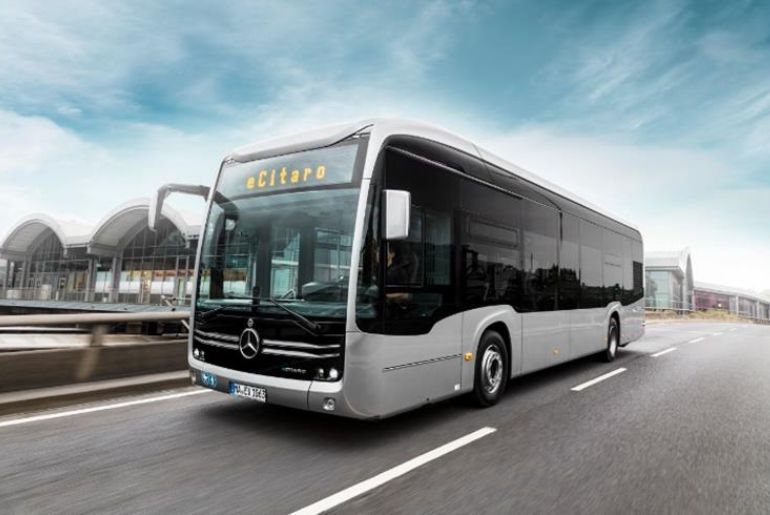A strategic collaboration has been established between Daimler Buses and BMZ Poland to develop and supply the upcoming generation of e-bus batteries.
BMZ and Daimler Buses will collaborate to advance current battery technology to meet the demands of electrically powered buses. The next NMC4 battery generation, which replaces the existing NMC3 technology, combines a very long cycle life with high energy density, extending the range of e-buses. NMC4 batteries will start to provide benefits to Daimler Bus customers in the middle of the decade.
Michael Klein, Chief Operating Officer Daimler Buses, said: “The collaboration between our companies combines two important aspects: Daimler Buses’ expertise in bus development and manufacturing as well as BMZ’s know-how in heavy-duty lithium-ion battery solutions. I am excited to see the development of an outstanding new generation of batteries for our electrically powered buses. This collaboration marks an important milestone in the shift towards zero-emission public transport across Europe.”
Tomasz Jankowski, General Manager of BMZ Poland: “Development and production of the best-in-class e-bus systems has been our strategy for a decade. We are proud to be able to work with Daimler Buses. I treat this nomination as an award for the consistent strategy of growth and investment into the electric bus market. Now, together with Daimler Buses, we will be able to implement this strategy on a much larger scale.”
”We will extend our production in Gliwice, making this facility the first of its kind in the EU built for the purpose of bus battery production along with a fully automatic assembling line,” added Paweł Kępski, Head of Business Unit EV, BMZ Poland.
According to Daimler Buses, a defined e-roadmap is being pursued systematically across all segments. City buses with electrical power have been produced in series since 2018. By the middle of the decade, intercity e-buses will be introduced, and by 2030, electrified coaches will be produced. By 2030, Daimler Buses hopes to provide locally CO2-neutral vehicles in every segment that are powered by hydrogen or batteries. At first, the main markets in Europe and Latin America are the emphasis. By 2039, only locally produced CO2-neutral new cars are expected to be offered for sale in Europe’s main market. This is anticipated to be the case in Europe as early as 2030 for the city bus market.

